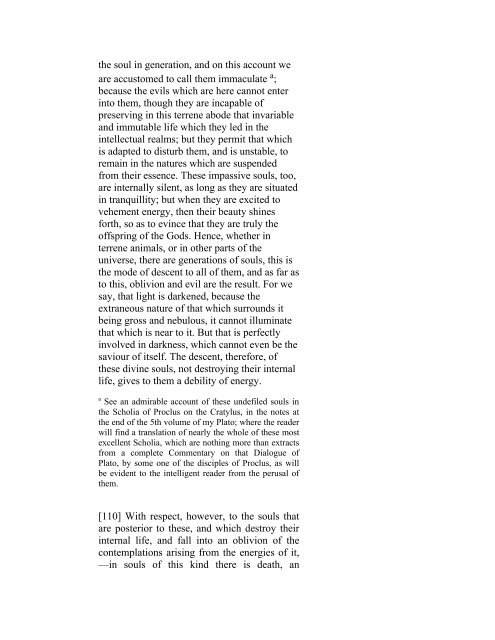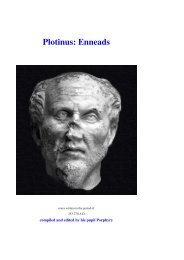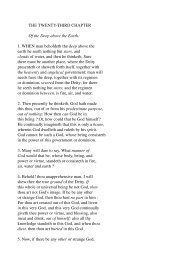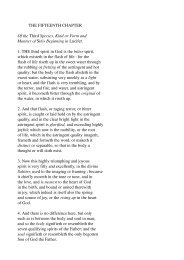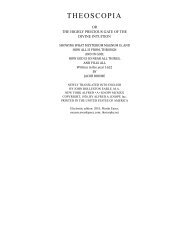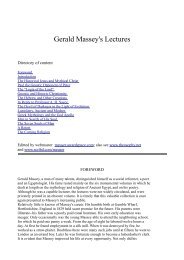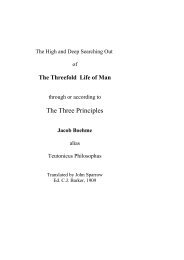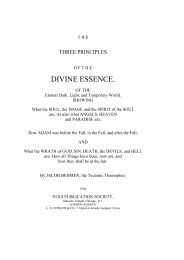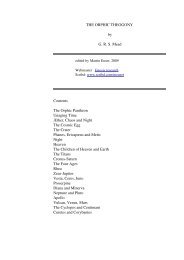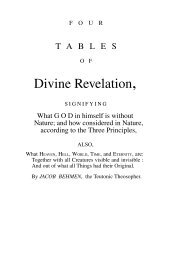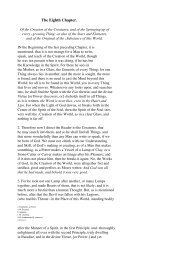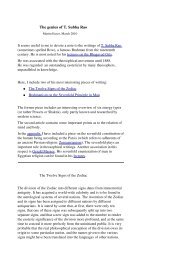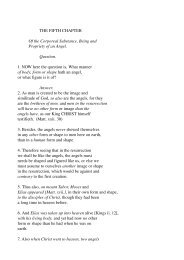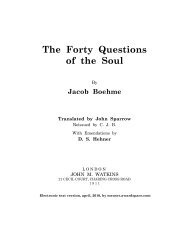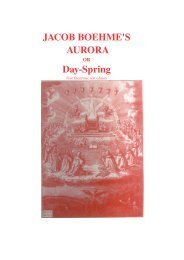PROCLUS, THE PLATONIC SUCCESSOR
PROCLUS, THE PLATONIC SUCCESSOR
PROCLUS, THE PLATONIC SUCCESSOR
Create successful ePaper yourself
Turn your PDF publications into a flip-book with our unique Google optimized e-Paper software.
the soul in generation, and on this account we<br />
are accustomed to call them immaculate a ;<br />
because the evils which are here cannot enter<br />
into them, though they are incapable of<br />
preserving in this terrene abode that invariable<br />
and immutable life which they led in the<br />
intellectual realms; but they permit that which<br />
is adapted to disturb them, and is unstable, to<br />
remain in the natures which are suspended<br />
from their essence. These impassive souls, too,<br />
are internally silent, as long as they are situated<br />
in tranquillity; but when they are excited to<br />
vehement energy, then their beauty shines<br />
forth, so as to evince that they are truly the<br />
offspring of the Gods. Hence, whether in<br />
terrene animals, or in other parts of the<br />
universe, there are generations of souls, this is<br />
the mode of descent to all of them, and as far as<br />
to this, oblivion and evil are the result. For we<br />
say, that light is darkened, because the<br />
extraneous nature of that which surrounds it<br />
being gross and nebulous, it cannot illuminate<br />
that which is near to it. But that is perfectly<br />
involved in darkness, which cannot even be the<br />
saviour of itself. The descent, therefore, of<br />
these divine souls, not destroying their internal<br />
life, gives to them a debility of energy.<br />
a See an admirable account of these undefiled souls in<br />
the Scholia of Proclus on the Cratylus, in the notes at<br />
the end of the 5th volume of my Plato; where the reader<br />
will find a translation of nearly the whole of these most<br />
excellent Scholia, which are nothing more than extracts<br />
from a complete Commentary on that Dialogue of<br />
Plato, by some one of the disciples of Proclus, as will<br />
be evident to the intelligent reader from the perusal of<br />
them.<br />
[110] With respect, however, to the souls that<br />
are posterior to these, and which destroy their<br />
internal life, and fall into an oblivion of the<br />
contemplations arising from the energies of it,<br />
—in souls of this kind there is death, an


